15 years
Over the past 15 years, Blue Ventures has grown from a handful of scientists working with one coastal community in Madagascar, to a flourishing team working across nine countries and impacting the lives of hundreds of thousands of people.
Read on for the 15 biggest moments in our journey to rebuild tropical fisheries with coastal communities.
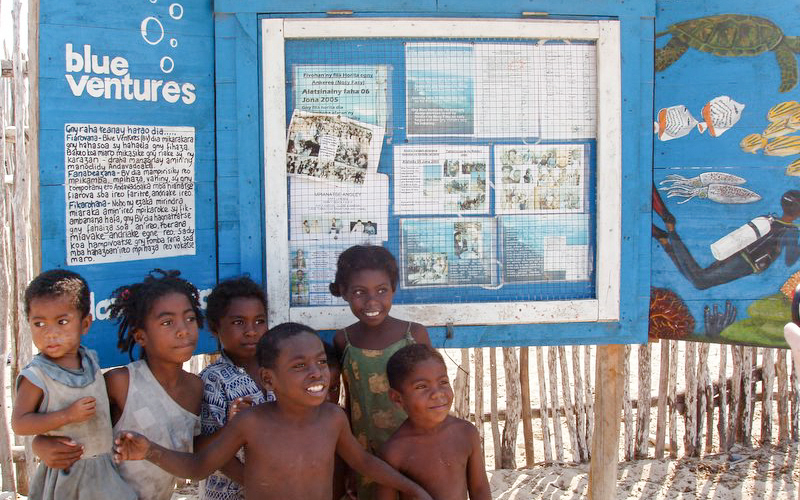
Humble beginnings...
15 years ago, 12 brave volunteers took the plunge and joined Blue Ventures’ first expedition to the remote village of Andavadoaka in southwest Madagascar to study the coral reefs there.
This pioneering group witnessed the threats to Andavadoaka’s reefs, and the daily challenges faced by their host community whose livelihoods were intimately dependent on the ocean. It was clear that any solution to the region’s conservation challenges would have to put the needs of Andavadoaka’s community first.
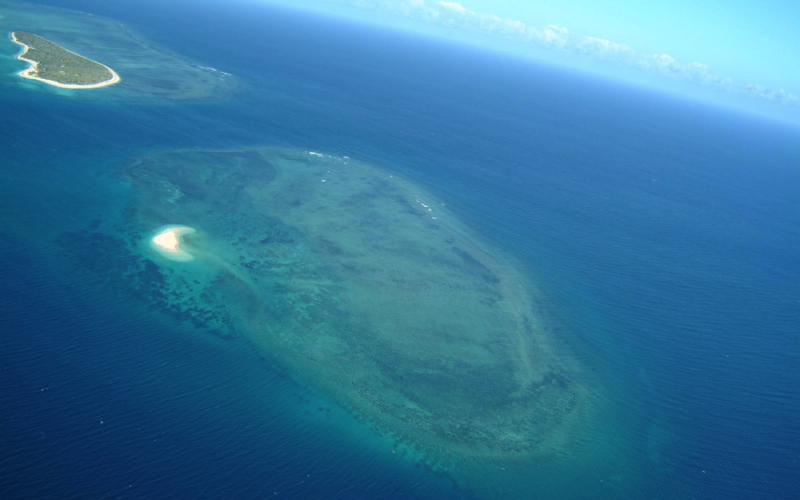
A leap of faith...
In November 2004, the Andavadoaka community took their first steps towards proactive marine management, closing a small area of their octopus fishing grounds for six months to give this critically important stock a chance to recover.
Their investment paid off as the increased yields following the closure generated more income than if the community had continued to fish.
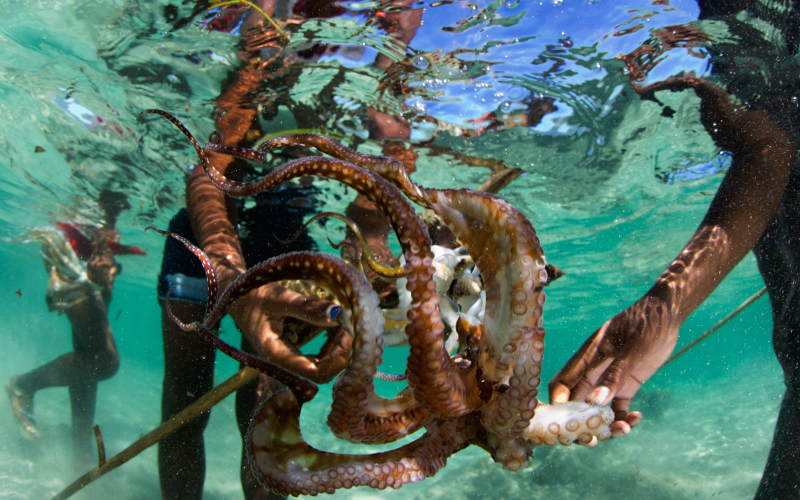
A conservation catalyst...
As news of Andavadoaka’s successful temporary octopus fishery closure spread along the coast, two neighbouring villages expressed interest in this form of fisheries management.
With support from Blue Ventures, these communities replicated this closure model. They used community-based laws called dina to enforce the closure, and data collectors from each community monitored the impact of the closures on their income and the environment.
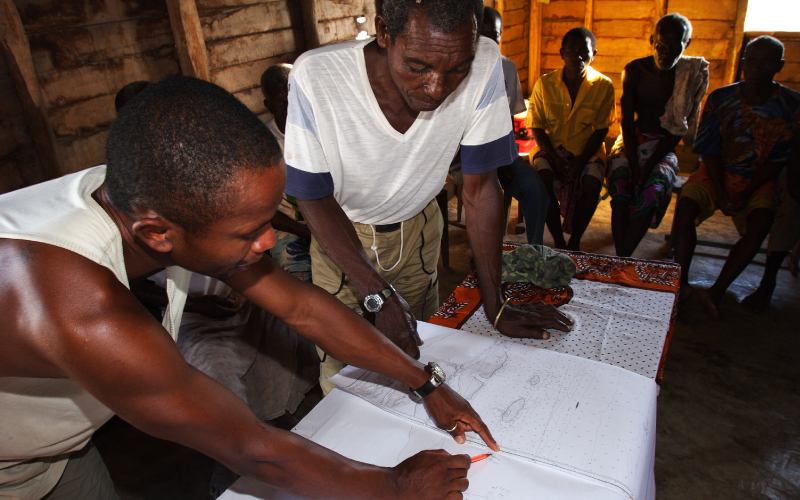
To live with the sea...
Buoyed by the success of the temporary octopus fishery closures, 100 leaders representing 23 villages around Andavadoaka came together to discuss options for greater collective management of their seas and fishing grounds.
These discussions led to the formation of a locally managed marine area (LMMA); a 600 square-kilometre area of ocean managed collaboratively by local communities, including 16 temporary coral reef fishing reserves for octopus, and three temporary mangrove reserves for crabs and other species. This LMMA was named ‘Velondriake’ which means ‘to live with the sea’.
This was a watershed moment for marine conservation in Madagascar; the use of temporary fishery closures to inspire broader local leadership and conservation action.
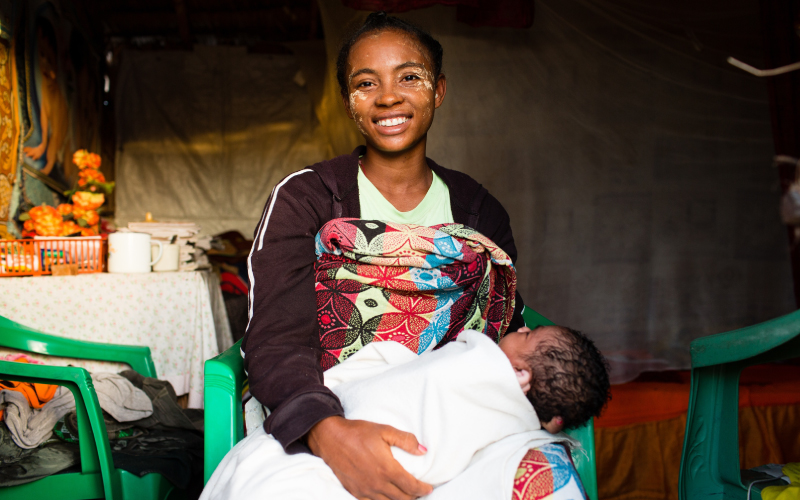
A holistic approach...
In response to the unmet family planning needs of the communities in Velondriake, Blue Ventures expanded its workto include reproductive health services. This initiative was named ‘Safidy', which means ‘choice’ in Malagasy, to reflect our commitment to advancing reproductive rights.
2007 also saw the launch of our community-based aquaculture programme in the village of Tampolove in Velondriake. Our model for sea cucumber aquaculture aims to provide an alternative source of income to fishing communities, while alleviating pressure on fisheries and marine biodiversity.
Blue Ventures began researching the shark and turtle fisheries in southwest Madagascar, pioneering digital camera – and later smartphone – monitoring systems.
A scholar sponsorship programme was started for young people in Velondriake, where only one in three children go to school.
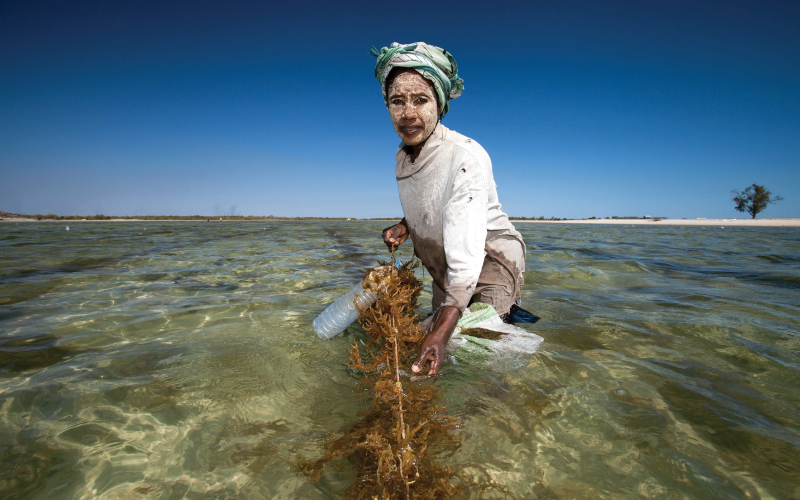
Navigating rough seas...
Madagascar’s 2009 political crisis gave rise to a period of uncertainty and instability across the whole country. Despite the challenges, 2009 saw further replication of the temporary fishery closures model, with 27 closures held across Madagascar.
These two years saw the expansion of Velondriake’s ambition with the creation of a network of eight permanent marine refuges, safeguarding critical coral reef and mangrove ecosystems.
Blue Ventures established its second community-based conservation programme 200km north of Velondriake in Belo sur Mer, western Madagascar, and expanded its aquaculture programme to include seaweed farming, helping to diversify community income.
Bic Manahira, our first Vezo employee in 2003, became the first Malagasy National to complete the PADI scuba instructor certification.
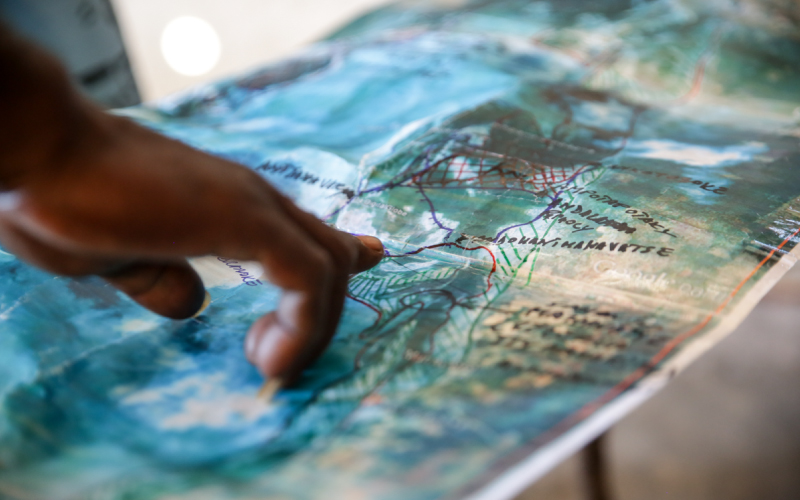
A grassroots movement for marine protection...
Inspired by the increasing popularity and success of temporary fisheries closures, the LMMA approach saw rapid uptake across Madagascar’s coastal communities in 2010.
Blue Ventures launched its marine conservation expeditions in Belize in February 2010 to monitor the effectiveness of the Bacalar Chico Marine Reserve. From our stunning and remote Caribbean dive camp, volunteers could now survey reefs once only accessible to scientific divers.
Also this year:
- Our community health programme celebrated as the first community health workers finished their medical training and begin delivering services in their communities in southern Madagascar.
- Our fisheries programme in Belo sur Mer supported the implementation of the first temporary crab fishery closure in the country, following community learning exchanges to Velondriake.
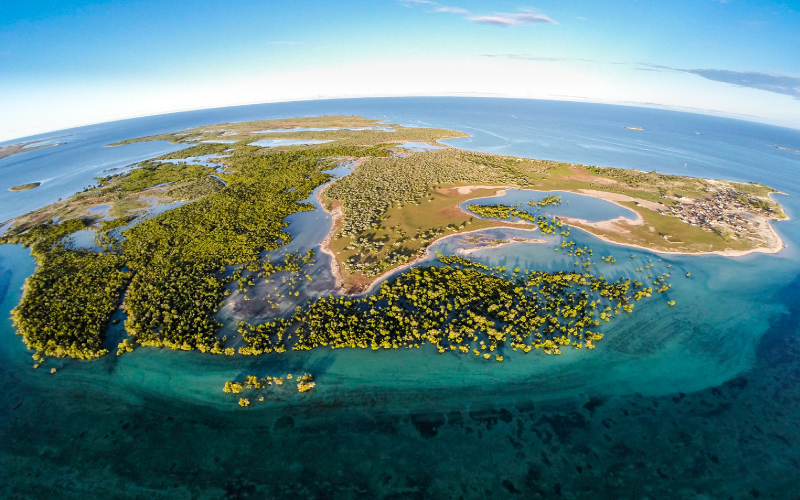
Blue forests...
Blue Ventures was selected from 165 entries as the winner of the Buckminster Fuller Challenge in recognition for our integrated approach to conservation. With the help of this prestigious award, we began scaling up our People Health Environment (PHE) work in Madagascar, and launched our blue forests programme to safeguard critically threatened mangrove forests.
This programme aims to support community-led mangrove conservation by harnessing international voluntary carbon markets to reward the local stewardship of mangrove ecosystems. Other elements of our holistic approach to mangrove management include mangrove fisheries management and improvement, and livelihood diversification strategies.
Also this year:
- We made an exploratory voyage to document the status of marine ecosystems in the remote Barren Isles archipelago in west Madagascar, home to some of the most pristine coral reefs in the country.
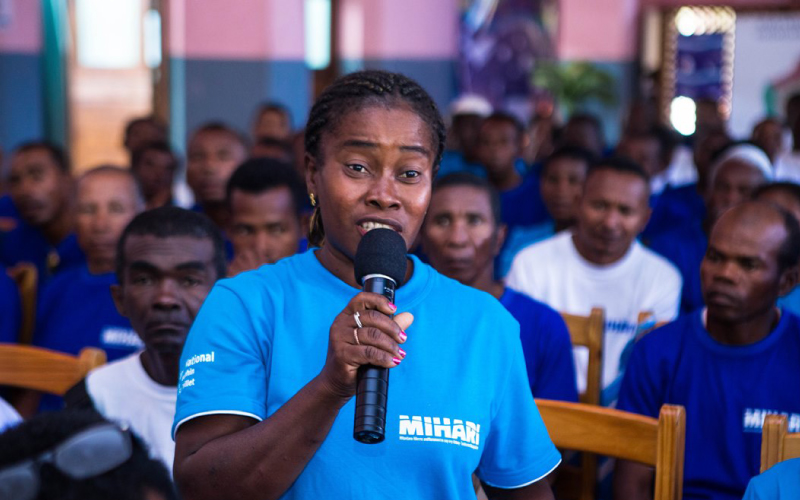
MIHARI...
In June 2012, Blue Ventures hosted the country’s first LMMA forum in Andavadoaka, which was attended by 34 representatives from LMMAs and supporting NGOs around the country.
Recognising the value of exploring common issues and developing collaborative solutions face-to-face, the participants decided to create the MIHARI Network to facilitate community learning exchanges across the country.
As MIHARI grew, its members quickly realised that the network could help create voice and agency among Madagascar’s 500,000 small-scale fishers. Today, MIHARI works closely with the Government of Madagascar to uphold the rights of coastal communities, who are often marginalised from decision making.
Also this year:
- Research data collected in the Barren Isles in 2011 enabled us to begin the development of an ambitious LMMA that would pioneer a human rights-based approach to community management across a vast offshore archipelago.
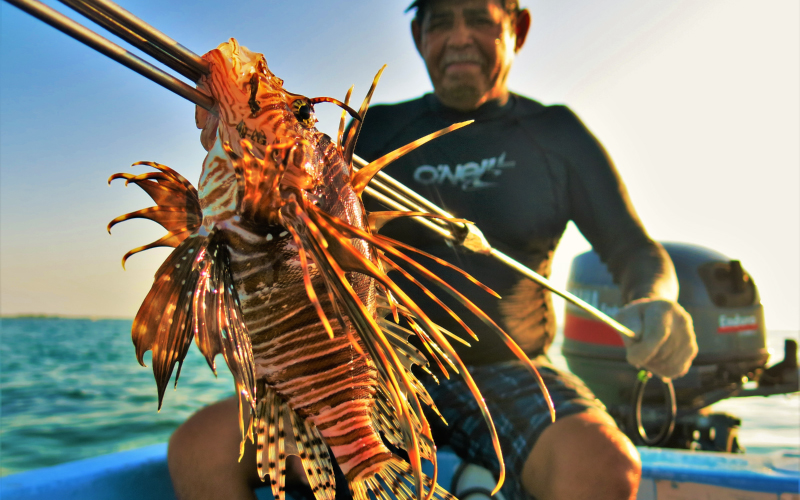
Eat da lion...
Blue Ventures’ Belize team witnessed firsthand the increasing problem of invasive lionfish. From 2011, we carried out regular lionfish removal dives in the Bacalar Chico Marine Reserve, and held outreach events in Sarteneja using our social marketing campaign Eat Da Lion.
2013 saw three huge developments for the lionfish project: we partnered with the Sarteneja Fishers Association in a series of workshops, studies and lionfish removal competitions; we facilitated Belize’s first international lionfish export; and a jeweller from Placencia began creating lionfish jewellery – an innovative way to add value to lionfish removal efforts!
Also this year:
- We opened a new office in Ambanja, northwest Madagascar, allowing our blue forests team to access Tsimipaika Bay – a vast mangrove bay experiencing some of the highest rates of deforestation in the country.
- Our community health programme expanded to include Belo sur Mer, providing more than 5,000 remote coastal fishers with access to reproductive health services.
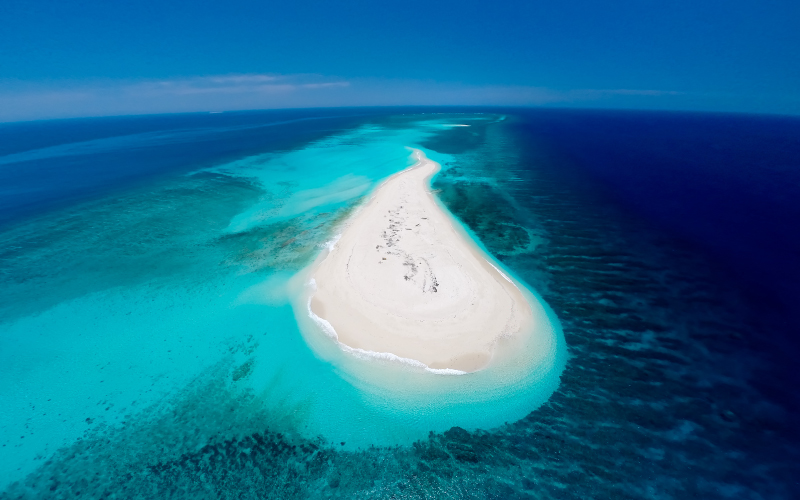
Greater protection for critical ecosystems...
After years of hard work, the Barren Isles archipelago was granted two-year protected status by the Government of Madagascar. This protection upheld local fishing rights by banning commercial fleets from fishing within the LMMA, and also established a permanent marine reserve around Nosy Mboro island to safeguard one of the few remaining strongholds of thriving marine biodiversity in the Western Indian Ocean.
At the time of creation, this was the largest LMMA anywhere in the world, covering 4,300 km2 of ocean. It is still the largest LMMA in the Indian Ocean.
This year also marked the creation of Madagascar’s first community-led mangrove carbon project – Tahiry Honko. Meaning ‘preserving mangroves’ in the local dialect, this project was implemented by ten villages in the Bay of Assassins in Velondriake.
Also this year:
- Blue Ventures won the St Andrews Prize for the Environment, enabling expansion of our community health programme into the Barren Isles archipelago.
- The Madagascar PHE Network was created to unite health and environment actors across the country, hosted in our Antananarivo office.
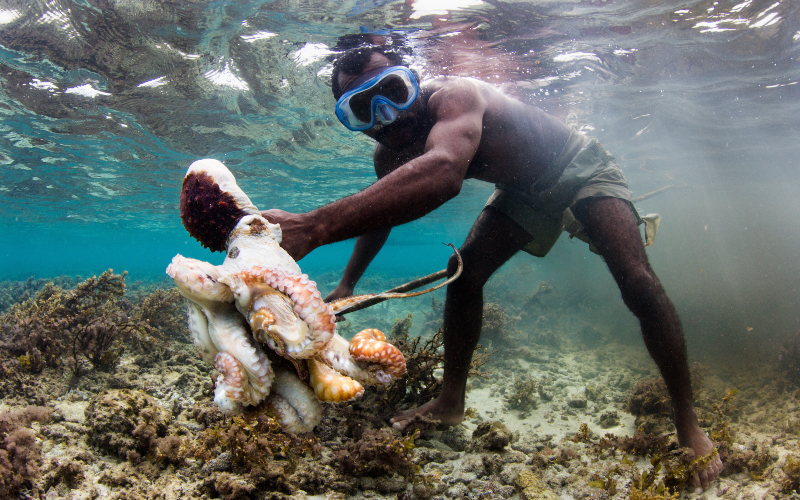
A year of recognition and research...
Our founder Alasdair Harris won the prestigious Skoll Award for Social Entrepreneurship in recognition of Blue Ventures’ innovative approach, enabling accelerated progress towards impact at scale. In the same year, WWF presented Blue Ventures with the Duke of Edinburgh Conservation Award for its significant contribution to marine conservation.
Blue Ventures received acclaim for our new lionfish expeditions in Belize, on which volunteers help protect the Belize Barrier Reef by removing invasive lionfish. These expeditions won the Outstanding Volunteer Project category at the Global Youth Travel Awards, and were listed in National Geographic’s 50 Tours of a Lifetime.
A landmark paper published in PLOS ONE highlighted the results of eight years of octopus fishery research in Madagascar, providing compelling evidence of the economic benefits of temporary octopus fishery closures, and their role in catalysing community engagement in conservation.
Also this year:
- Blue Ventures formed a partnership with the community-led organisation Dahari in Comoros, with a view to building capacity for supporting locally led marine conservation in this high biodiversity archipelago nation.
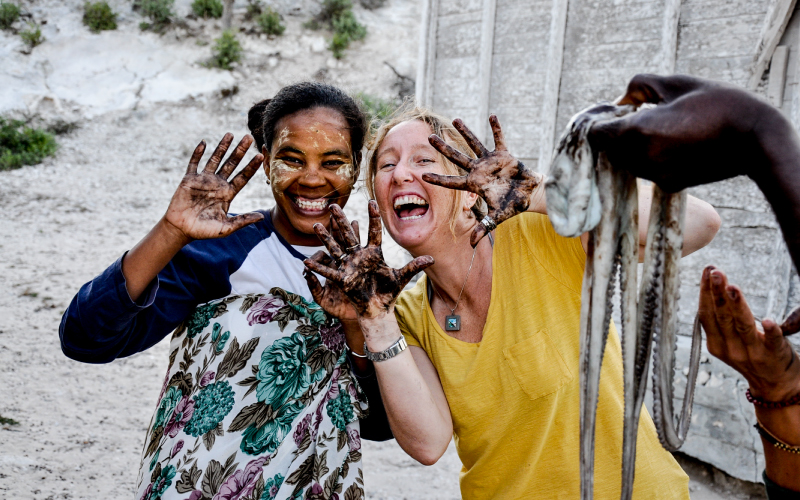
Accelerating progress...
Blue Ventures increased its efforts to share experiences and models with partner organisations and communities, striving for impact at scale.
We began supporting partners in Mozambique to facilitate community-led octopus fishery management and community health services, and hosted our largest learning exchange yet, with partners from five different countries visiting Madagascar to learn more about locally led marine conservation.
We also opened a new country programme in Timor-Leste, the country with the highest diversity of marine life on earth.
Also this year:
- Building on our experiences in Timor-Leste, in Madagascar we supported the Velondriake Association to form a homestay project, allowing volunteers to stay with community families and provide an alternative source of income.
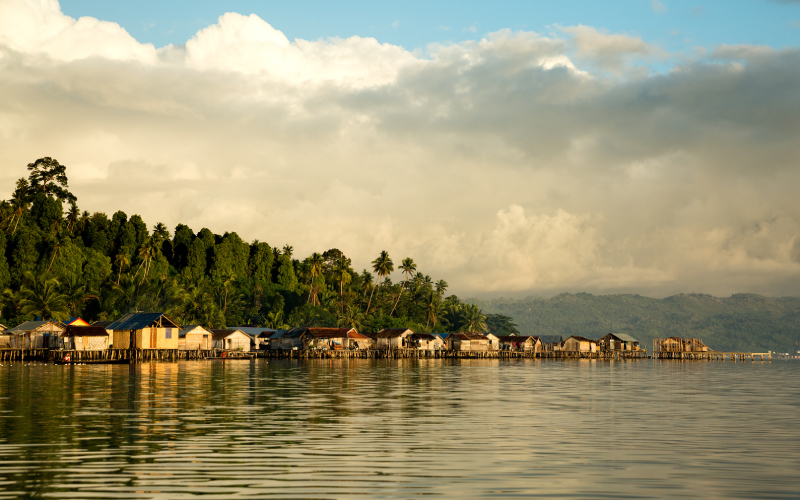
Sharing, learning, growing...
Blue Ventures began supporting four new partners in two new countries – sharing our experience in octopus fisheries management and the PHE approach with the community-led organisations Forkani and LINI in Indonesia, and Mwambao Coastal Community Network and Marine Cultures in Tanzania.
These partnerships led to an octopus fisheries forum in Kaledupa, Indonesia, and the first temporary octopus fishery closure in Zanzibar for many years.
Also this year:
- In Madagascar, our community health programme celebrated its 10-year anniversary, and new research showed that its interventions had led to a significant uptake in modern contraceptive methods and a decline in fertility across Velondriake.
- The MIHARI Network held its National Forum in Fort Dauphin, bringing together 170 community representatives and presenting three motions to Government representatives in attendance.
- A new watchtower was built in Tampolove to help guard the 41 newly redesigned community sea cucumber farms in preparation for juvenile stocking.
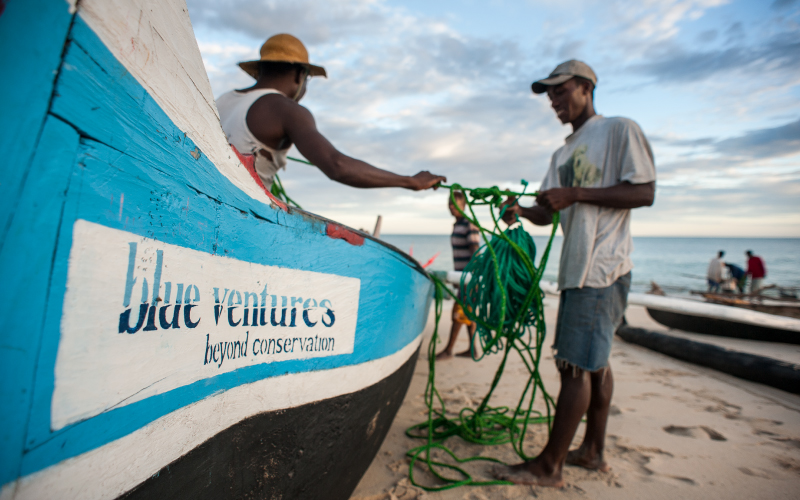
A 15 year voyage...
Since the first Blue Ventures expedition, more than 2,400 volunteers have followed in the footsteps of the 2003 pioneers, monitoring over 100 coral reef sites across five countries.
We now have over 200 dedicated staff members working and supporting partners across nine countries.
Over 300 temporary fishery closures have been established across eight countries following the Andavadoaka model, and 18.7% of Madagascar’s inshore waters are currently within over 80 LMMAs.
Over 570 people have been trained by our aquaculture specialists to farm sea cucumbers and seaweed.
Our community health programme has supported 149 community health service delivery points in Madagascar, serving over 45,000 people.
To date, Blue Ventures has supported over 280,000 people worldwide, and our work has been instrumental in raising global recognition of the critical importance of local leadership in marine conservation.
These achievements have only been possible thanks to the support of our friends, partners and volunteers.
Going forwards
Today we’re still working in that first village of Andavadoaka, and don’t plan to leave anytime soon. Its community has taught us that effective conservation takes decades, not years, and that our commitment to delivering meaningful value to communities must be unwavering.
These lessons have been fundamental to our experience, and today they’re hardwired into the culture and values of our team as our voyage continues.
